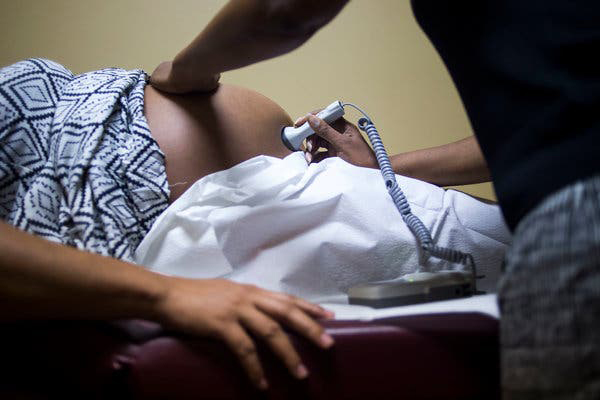Prime
Cytomegalovirus, a silent infection

When diagnosed early, babies with congenital CMV can be treated with antiviral medicine. PHOTOS/INTERNET
What you need to know:
- Over half of adults are believed to have been infected with Cytomegalovirus or CMV by age 40. Most people infected with CMV show no signs or symptoms. When a baby is born with cytomegalovirus (t is called congenital CMV
It is quite frustrating, that, after giving birth you discover your child is suffering from an illness that could have been avoided if it had been detected during the antenatal visits.
That was the case with Alice (name withheld), an HIV positive mother, after the birth of her second born.
“I wish I had known, maybe it could have prepared me for what the future held,” she reveals.
Today, Alice’s child is battling with Cytomegalovirus (CMV), the largest of the herpes viruses that causes a wide range of diseases that affect the eyes, food pipe (esophagus), liver and the brain in people with low immunity.
While it is a common virus, many people do not know they have it because it rarely causes disease among those who are healthy.
The virus is most ferocious among persons with weakened immunity such as those with HIV/Aids, and persons who have had an organ or stem cell transplant.
According to Mark Kizito, a physician, once one contracts it, the virus remains in the body for life.
“For women who develop an active CMV infection during pregnancy, chances of passing it to their unborn babies are high,” he says.
Mode of transmission
CMV is commonly acquired early in life, during childhood to early adulthood, through exposure to saliva, tears, urine, stool, breast milk, semen and other bodily secretions from infected individuals.
“It can also be transmitted efficiently via organ and tissue transplantations and blood transfusions,” Dr Kizito says.
CMV can also be passed on from an infected pregnant mother to her unborn baby.
“In this case, the baby is born with congenital CMV disease. The risk of transmission is highest if CMV infection occurs during the first half of pregnancy,” Dr Kizito says.
While the infection has no cure, it can be recurring and one can be infected with different strains of the virus.
According to Dr Ivan Kisuule, CMV can only be passed on when in its active state.
“The virus is said to be active when someone gets it for the first time. For example, pregnant mothers pass an active CMV infection to their unborn babies,” the Kiruddu National Referral Hospital-based physician says.
The virus can also be reactivated when a person who has recovered from it contracts HIV which weakens their immune system.
“A reactivation also occurs among pregnant women,” Dr Kisuule says.
It is also important to note that CMV easily spreads in places with very many children such as day care centres.
Symptoms
When a healthy person gets a CMV infection, they will exhibit no or minor symptoms because they suppress the virus. Dr Kisuule says the minor symptoms include fatigue, muscle aches, fever, and sore throat.
For babies infected before birth, Dr Kisuule says they develop congenital CMV and may appear healthy at birth but will start developing signs over time which could be months or years after birth.
“The most common of these are hearing loss and development delays. A small percentage of these will develop vision problems,” he says, adding that babies who develop congenital CMV yet are also sick at birth are born prematurely.
“They also have low birth weight, jaundice (yellow eyes and skin), poorly functioning and enlarged liver, enlarged spleen, abnormally small head, seizures, bruise-like rashes, hearing loss, and pneumonia.”
Infants who get infected at birth or shortly thereafter, are infected through breast milk and will develop the infection because their immune system is still developing.
“However, even with HIV, one will only get sick with CMV when their CD4 count drops below 100,” he says
Dr Kisuule says some rare symptoms may also be seen among those who are getting CMV for the first time such as changes in personality, headaches, dry cough, trouble concentrating, and shortness of breath.
Diagnosis
For adults, Dr Kizito says blood tests are ideal while for newborns, tests are done on saliva or urine.
“CMV is usually diagnosed by detecting antibodies against CMV using CMV antibody tests. It can also be diagnosed by detecting the CMV genes using PCR test,” he says.
While testing is possible, it is not widely done and Dr Kisuule says it is because tests for CMV are very expensive and not readily available.
“That is why we do not routinely test for it. It is only private laboratories that do it.”
Treatment
The infection has no cure but one can be given medication to weaken the virus therefore dealing with the symptoms. “With this treatment, serious health issues are averted. Options include Intravenous ganciclovir and oral valganciclovir,” Dr Kizito shares. However, among pregnant women, he says with several medicine restrictions, there is no treatment for them.
CMV complications
While complications are rare, Dr Kisuule says CMV can cause some complications to the sufferer and these include mononucleosis, myocarditis (heart inflammation), encephalitis (brain inflammation), and Gillian-Barre syndrome- a disease affecting nerves leading to paralysis.
Among people with HIV, he says it will cause retinitis, pneumonia, brain swelling, skin rashes and lesions, seizures, problem with the lungs, esophagus, nerves, colon or mucous membranes, learning problems, and cerebral palsy or trouble with coordination and muscle tone.
Reducing CMV among pregnant women
To reduce transmission of the virus during pregnancy, Dr Mark Kizito says the following precautions ought to be taken:
Regularly wash toys and any other items that may have saliva or urine from young children.
Wash your hands with soap and water especially after feeding young children, changing diapers or cleaning their nose.
Avoid sharing cutlery or any other utensils, food or putting a child’s teething dummy in your mouth.
Avoid kissing children on the mouth.





